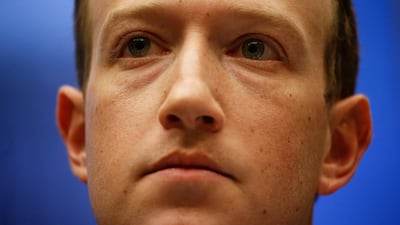It seems hard to believe, but when telephones were first introduced in the 19th century they only worked in pairs. For every person you wished to talk to, you needed a separate phone.
Fortunately, a network was eventually built that allowed global communication to flourish, but in the world of instant messaging, walled gardens still inhibit free and easy communication. Services such as Apple’s iMessage, Microsoft’s Skype and Google’s Hangouts work strictly independently of one another. WhatsApp, the world’s biggest messaging app, bought by Facebook for $19 billion in 2014, can’t even send messages to Facebook’s own Messenger application, or indeed to users of Instagram, Facebook’s photo-sharing app.
But change is afoot. By the year 2020, Facebook aims to merge the messaging facilities of all three services, while keeping the apps themselves separate. "Fast, simple, reliable," said a company spokesman. "We want to build the best messaging experiences we can." But Facebook rarely makes decisions for purely altruistic reasons, so what's in it for them? And is it as beneficial to users as it's making out?
Facebook's reputation has taken a pummelling of late. The Cambridge Analytica scandal, in which the data of 87 million Facebook users was harvested by a political consultancy firm, caused confidence in the company's security to fall, according to one study, from 80 per cent of users to just 27 per cent.
In addition, growing awareness of how Facebook mines personal data to serve relevant advertisements has led to growing disquiet. It’s rare to stumble across any positive Facebook news these days; even last week, a class-action lawsuit against the firm revealed that the company had, over a number of years, allowed and encouraged children to unwittingly spend their parents’ money in online games.
In response to the ongoing public relations disaster, founder and CEO Mark Zuckerberg penned a piece for the Wall Street Journal last week in an attempt to defend the company. "Billions of people get a free service to stay connected to the people they care about and to express themselves," he wrote. "Small businesses around the world get access to tools to grow and create jobs."
Zuckerberg’s decision to merge his empire’s messaging services certainly fulfils his often-stated dream of connecting the world, but many employees of Instagram and WhatsApp are unhappy with the move – not least because Zuckerberg promised them independence.
“We need to [build] on Instagram’s strengths and features, rather than just trying to integrate everything into Facebook," he said when Instagram was purchased in 2012. WhatsApp’s co-founders, Brian Acton and Jan Koum, were reassured that their strict no-advertisement policy would be respected by Facebook, but last year it was announced that adverts would be introduced to extract revenue from a platform that makes very little money. In response, Koum and Acton left the company. So did Kevin Systrom and Mike Krieger, co-founders of Instagram.
The merger makes sense in the context of Facebook’s waning popularity. Zuckerberg sees messaging as critical to the company’s future, and by letting people send messages to WhatsApp and Instagram contacts from within Facebook, they will be kept on the platform for longer. But the differing stances on privacy between the services create a number of technical and moral difficulties.
WhatsApp is proud of the end-to-end encryption that prevents its messages from being read by anyone except the sender and the recipient. Instagram and Messenger currently have no such protection, and while Facebook has vowed to give them end-to-end encryption as part of the merger, other critical differences remain.
Instagram and WhatsApp can be used anonymously, but Facebook requires you to use your real name. WhatsApp requires a functioning mobile phone number to operate, while the others do not. Authorities in Europe have long expressed concern over Facebook’s attempts to pool data across its services, but the likely merging of names, pseudonyms, phone numbers, Facebook profile information and other metadata (such as location) is of great value to Facebook. It doesn’t need to be able to read your messages to serve relevant adverts to you across all three platforms. Such information can be gleaned in many other ways.
But many WhatsApp users who are accustomed to an advert-free experience will resent adverts following them across from Facebook. They may also resent the inevitable cross-platform deluge of spam, misinformation and unwanted communication; it is, after all, possible to be too connected to each other. Some may protest by leaving the platform for other apps such as Signal or Telegram – but if one’s friends aren’t using them, what use are they? The sheer number of people using these platforms makes them a captive audience.
“Ultimately, the business model of Facebook and other social networks depends on trust,” said Germany's Minister of Justice, Katarina Barley, at the weekend. “Lately, that is a commodity that has been in short supply.” Calls were made last week by a number of American advocacy groups to split Facebook from WhatsApp and Instagram based on what they believe is an abuse of its position in the market. This view may well be shared by the nominee for US Attorney General, William Barr, based on comments he made in recent testimony before Congress. “I think a lot of people wonder [how] these big behemoths have taken shape in Silicon Valley,” he said.
But that’s perhaps the most cunning part of Facebook’s move: by merging its messaging services, it makes itself harder to break apart. Facebook is, in some ways, so large that it can do what it wants. The 2.6 billion people who use its services to communicate are likely to continue to dance to its tune.


